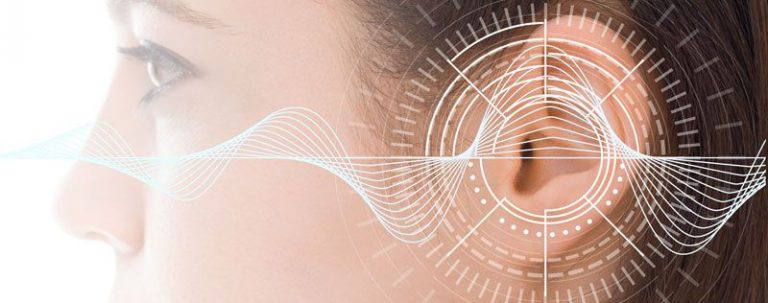Tinnitus is a widespread condition that affects an estimated 50 million Americans. Some people describe it as a hissing, roaring, whooshing, ringing or buzzing sound. It may be sporadic or constant, and is a symptom of an underlying condition rather than a disease itself. Although bothersome, tinnitus usually isn’t a sign of something serious. Although it can worsen with time, for many people, tinnitus can improve with treatment. Treating an identified underlying cause sometimes helps. Other treatments reduce or mask the noise, making tinnitus less noticeable.

What Are the Causes of Tinnitus?
The exact cause of tinnitus is still unknown. Research has been trying to identify the source for many years. One current theory is that tinnitus is caused by damage to the tiny hair cells of the inner ear. In a healthy ear the pressure of sound waves trigger the cells to release an electrical signal through the auditory nerve to your brain. The brain then interprets these signals as sound. However, in an ear where the cells are broken the signal is misfired, causing a distortion of the sound perceived as tinnitus. There are definite patterns as to when a person might experience the symptom of tinnitus.
Tinnitus associated with health conditions
Co-morbid common health conditions include: age related hearing loss, exposure to loud noise, earwax blockage, ossicle (ear bone) changes.
Less common conditions when a person may experience tinnitus are: Meniere’s disease, TMJ disorders, head or neck injuries, and acoustic neuroma, and eustachian tube dysfunction.
In rare cases, tinnitus is associated by a blood vessel disorder such as: atherosclerosis, head and neck tumors, high blood pressure, turbulent blood flow, or malformation of capillaries.
Tinnitus as a side effect of Medication
Many medications list tinnitus as a potential side affect. For some people this means a worsening of their already present tinnitus and for others this may mean a new onset. Generally, the higher the dose of the medication, the worse the side effect. For some individuals when the medication is stopped the noise disappears, but for others it remains.
Medications known to cause or worsen tinnitus include:
- Antibiotics, including polymyxin B, erythromycin, vancomycin (Vancocin HCL, Firvanq) and neomycin
- Cancer medications, including methotrexate (Trexall) and cisplatin
- Water pills (diuretics), such as bumetanide (Bumex), ethacrynic acid (Edecrin) or furosemide (Lasix)
- Quinine medications used for malaria or other health conditions
- Certain antidepressants, which may worsen tinnitus
- Aspirin taken in uncommonly high doses (usually 12 or more a day)
In addition, some herbal supplements can cause tinnitus, as can nicotine and caffeine.
Complications of tinnitus: Tinnitus can significantly affect quality of life. Although it affects people differently, if you have tinnitus, you may also experience: Fatigue, Stress, Sleep problems, Trouble concentrating, Memory problems, Depression, Anxiety and irritability. Treating these linked conditions may not affect tinnitus directly, but it can help you feel better.
Preventing tinnitus: In many cases, tinnitus is the result of something that can’t be prevented. However, some precautions can help prevent certain kinds of tinnitus: Use hearing protection, Turn down the volume, Take care of your cardiovascular health.
How Is Tinnitus Treated?
Tinnitus can’t be cured, but there are treatments that make it less of a distraction. The approach taken depends on the underlying condition responsible for the ringing in your ears. Sometimes, simple steps like removing built-up earwax or switching to a new medication can markedly decrease symptoms.
Others benefit from noise suppression therapy or masking techniques designed to cover up the ringing noise. White noise machines, fans, air conditioners and humidifiers are all popular, easy to use options.
Tinnitus retraining devices, which rely on patterned tones, are a newer technique that has proven beneficial to many patients.
Call the Center for Hearing & Speech at (314) 968-4710 for more information or to schedule an appointment.